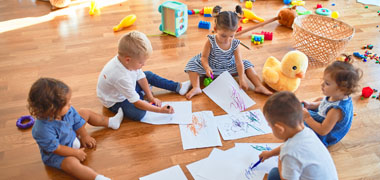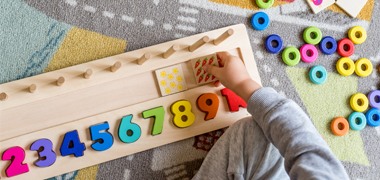
This role has a moderate level of AI exposure. AI can enhance efficiency for some tasks, but this job still relies on human skills and decision-making.
Explore all careersAn Early Childhood Teacher educates young children before primary school, focusing on literacy, numeracy, and social skills through engaging activities.
Get qualified to work as an Early Childhood Teacher with a course recognised across Australia. Speak to a training provider to learn more.
Browse occupations related to Early Childhood Teacher
In Australia, a full time Early Childhood Teacher generally earns $1,300 per week ($67,600 annual salary) before tax. This is a median figure for full-time employees and should be considered a guide only. As you gain more experience you can expect a potentially higher salary than people who are new to the industry.
 Courses.com.au Team
Courses.com.au Team
This industry has seen very strong job growth in recent years. There are currently 42,300 people employed as an Early Childhood Teacher in Australia compared to 27,000 five years ago. Early Childhood Teachers may find work across all regions of Australia.
Source: Australian Government Labour Market Insights
 Courses.com.au Team
Courses.com.au Team
If you’re planning a career as an Early Childhood Teacher, consider enrolling in a Diploma of Early Childhood Education and Care. This course will show you how to develop and deliver a curriculum suitable for children of a young age. You’ll explore topics including working with families and nurturing creativity in early childhood.
 Courses.com.au Team
Courses.com.au Team



An Early Childhood Teacher educates young children in the years before they begin primary school. You might work in a childcare centre, a kindergarten or other early education facility. Early Childhood Teachers focus on basic literacy and numeracy skills as well as social and communication skills. You’ll prepare age-appropriate activities to encourage children’s learning and development and introduce them to skills they will need throughout their school years.
Early Childhood Teachers play an important role in young children’s lives. You’ll need to be energetic and patient and be able to communicate easily with young children. You’ll liaise with families and other educators to ensure the children in your care are developing appropriately and getting the support they need.